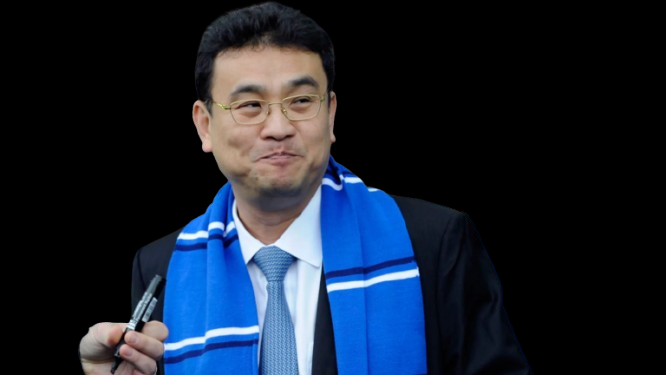Who Is Dejphon Chansiri?
Dejphon Chansiri is a Thai businessman and investor best known for owning English football club Sheffield Wednesday since 2015. He is part of the family behind Thai Union Group, one of the world’s leading canned seafood and tuna producers. His journey combines traditional industrial roots with bold moves in sports and capital markets.
Early Life and Roots in Thailand
Dejphon Chansiri was born on June 3, 1968, in Bangkok, Thailand. He comes from a family with strong industrial and business foundations, particularly in the seafood processing and export sector. This background gave him access to large-scale operations, supply chains, and international trade exposure from an early age.
The Thai Union Legacy and Business Foundations
Chansiri’s family controls Thai Union Group, a prominent player in the global canned tuna and seafood sector. Under his family’s stewardship, Thai Union has expanded into international markets, built strong brand partnerships, and navigated complex regulatory and environmental pressures. Forbes estimated the Chansiri family’s net worth at around US$575 million in 2020.
Acquisition of Sheffield Wednesday
In January 2015, Dejphon Chansiri led a consortium that acquired Sheffield Wednesday from Milan Mandarić for £37.5 million. He quickly declared ambition: promotion to the Premier League by 2017, coinciding with the club’s 150th anniversary. He injected capital, reorganized the club’s structure, and oversaw changes in both management and player recruitment.
Early Ambition and Sporting Investment
During his first full season in charge, Sheffield Wednesday reached the Championship playoff final but lost narrowly. The initial investment wave included signings like Lucas João, Gary Hooper, and others. The following season, he continued backing the squad with big-money recruits, such as Jordan Rhodes and Almen Abdi. Those early years established Chansiri’s willingness to spend for results.
Turning Headwinds: Financial Strain and Regulation
After a few seasons, investment started to taper. Sheffield Wednesday began to suffer from financial strain, injuries, and unstable results. The club incurred a six-point penalty for breaching EFL Profitability and Sustainability Rules relating to the 2017–18 reporting period. Moreover, Chansiri secured debt against the Hillsborough stadium to shore up cash flow.
Relegation and the Fight to Return
The club was relegated from the Championship to League One in 2020–21 after nine years in that division. Subsequent seasons were challenging. Chansiri spent heavily to rebuild and attempted to regain status. In the 2022–23 season, Sheffield Wednesday succeeded via the playoffs, returning to the Championship. That return was a morale boost—but structural financial issues persisted.
Recent Challenges and Crisis Points
In recent years, the club has experienced wage delays, financial embargoes, and regulatory scrutiny. Players and staff frequently suffered late payments, leading to tension and criticism. The club was repeatedly placed under registration embargoes for failing to meet HM Revenue and Customs obligations. Union groups publicly condemned Chansiri’s management, calling for full salaries and more accountable governance.
In 2025, the club faced fresh charges by the EFL for multiple breaches related to unpaid wages. Chansiri issued a public apology and attributed some of the trouble to cash flow issues stemming from money owed to other businesses. Sheffield Wednesday was facing registration embargoes, transfer restrictions, and pressure from regulators and fans alike.
Reputation, Public Perception, and Fan Backlash
Whereas Chansiri entered with promise and optimism, his tenure has become controversial. Long-standing fans have protested, boycotted season ticket renewals (a survey indicated that nearly 90% would not renew under his continued ownership), and demanded that he sell the club. In Parliament and among football regulators, voices have cautioned that football club owners are custodians of community assets, not just profit vehicles. The UK government has warned that “change is coming,” hinting at potential regulatory intervention if the current status quo persists.
Financial Strategy and Investment Philosophy
Chansiri’s approach reflects both ambition and risk. He has sought to leverage his industrial business background to maintain capital support, often funneling money into the club during crises (at times reportedly investing around £3.5 million per month). But critics argue that many of these injections mask underlying structural problems, such as high debt levels (reportedly around £68 million in borrowing) and liabilities tied to his broader business interests. The purchase of Hillsborough stadium from the club itself, for example, has raised questions about internal asset transfers and compliance with spending rules.
Global Angle: Beyond Football
While Sheffield Wednesday has been Chansiri’s most visible asset, his broader significance lies in bridging the traditional manufacturing and global finance sectors. The Thai Union operations provide a steady industrial backbone, enabling it to venture into more volatile sectors, such as sports. In many ways, he represents a modern hybrid investor: grounded in the legacies of commodities and manufacturing, yet daring enough to place high-stakes bets in entertainment and sports.
What’s Next: Sale, Rescue, or Reinvention?
As 2025 has unfolded, Chansiri has faced growing calls to sell the club. Some offers have been floated (one valued at £100 million was reportedly considered), though none have fully materialized. Regulators are increasingly empowered to intervene. Observers note that Chansiri’s stance may be softening—he has shown more openness to bids than in earlier years. Meanwhile, the club requires serious financial stabilization, improved governance, and renewed trust with fans and regulators.
Lessons from a High-Risk Ownership Model
- Capital is necessary but not sufficient. Chansiri’s early spending won headlines, but sustaining performance requires structural revenue growth and governance discipline.
- Transparency matters. Late payments and opaque financial dealings erode trust among fans, staff, and regulators.
- Diversification is a double-edged sword. Chansiri’s industrial base provides resilience, but linking football finances to external business debt can destabilize the club when external cash flow is disrupted.
- Community legitimacy is fragile. Clubs live in emotional landscapes. Owners must treat supporter relationships, reputational goodwill, and regulatory norms as assets, not liabilities.
The Bigger Picture: Why Dejphon Chansiri Matters
Dejphon Chansiri’s journey is significant because it illustrates how modern billionaires interact with sports, governance, and public accountability. He is not a one-dimensional figure. He blends industrial scale with lofty ambition in sports, risking reputation to make his mark. Whether he ends as a visionary or a cautionary tale depends on the next few years: stabilization, potential sale, or regulatory restructuring.




